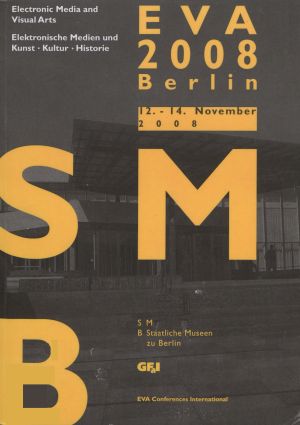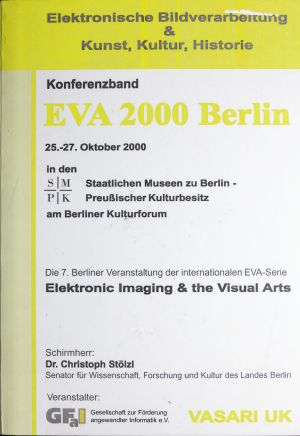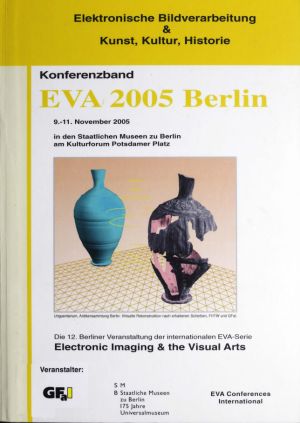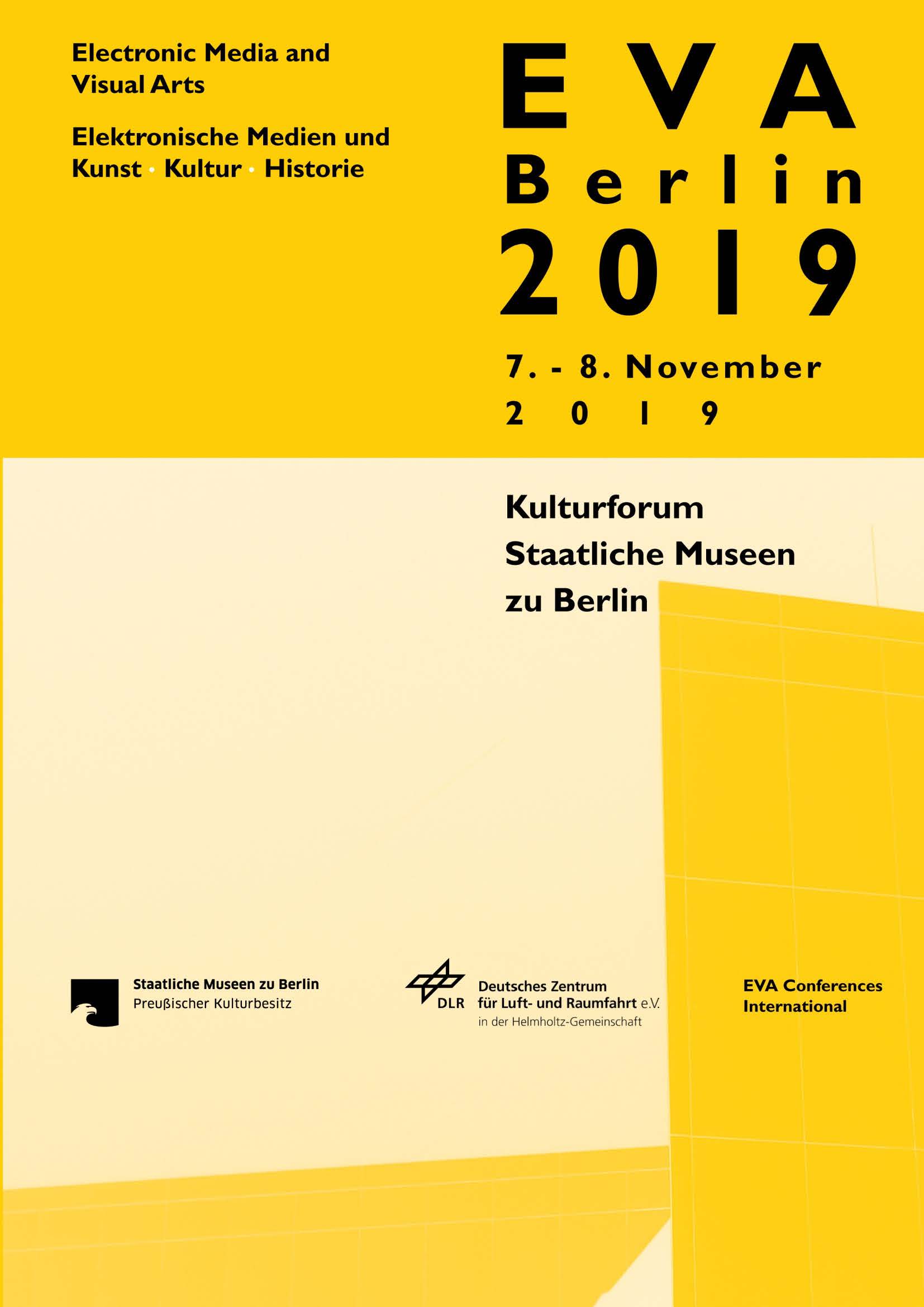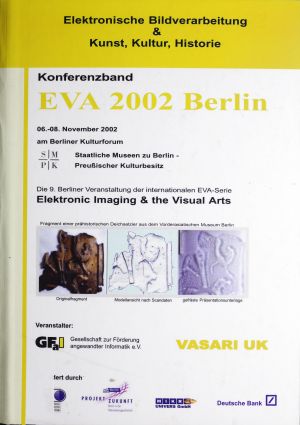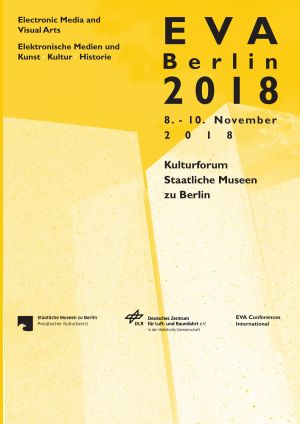Gschwind, Rudolf
Elektronische Medien & Kunst, Kultur, Historie: Konferenzband EVA 2008 Berlin ; 12. - 14. November 2008 in den Staatlichen Museen zu Berlin am Kulturforum Potsdamer Platz ; die 15. Berliner Veranstaltung der internationalen EVA-Serie Electronic Imaging & the Visual Arts
Konferenzband EVA 2011 Berlin Elektronische Medien & Kunst, Kultur, Historie: Die 18. Berliner Veranstaltung der internationalen EVA-Serie Electronic Imaging & the Visual Arts (u. a. EVA London, EVA Florence, EVA Moscow & EVA Berlin)
Konferenzband EVA 2000 Berlin. Elektronische Bildverarbeitung & Kunst, Kultur, Historie: Die 7. Berliner Veranstaltung der internationalen EVA-Serie Electronic Imaging & the Visual Arts
Konferenzband EVA 2005 Berlin. Elektronische Bildverarbeitung & Kunst, Kultur, Historie: Die 12. Berliner Veranstaltung der internationalen EVA-Serie Electronic Imaging & the Visual Arts
Konferenzband EVA Berlin 2019. Elektronische Medien & Kunst, Kultur und Historie: 26. Berliner Veranstaltung der internationalen EVA-Serie Electronic Media and Visual Arts
“BASED ON TRUST! Culture in Virtual Environment” is the focus of this year’s conference. It alludes to the oscillating field of tension that has been opened up between data identity and the real presence of cultural heritage. Digital transformation has made available the collection objects in cyberspace. Concerts and performances are transmitted as datastreams, and education and learning is continuously improved by the use of the VR. Digital telepresence technologies, thus, expand the visibility of cultural heritage and generate new contexts, narratives and perspectives.
But how can we represent credibility and uniqueness of the material evidence of the objects in digital data streams? What technical requirements are associated with the creation of plausible and citable scenarios and atmospheres in VR? The claim «Based on Trust» refers to all areas of the «virtualization of the museum» in 2D, 3D, sound and video formats as well as in e-installations, explorative VR applications and AI. Authenticity and credibility are not self-evident at all in digital media. They require complex attribution processes and data curatorial expertise. The Berlin EVA Conference deals with these topics at the interface between memory institutions, public administrations, technology providers and information scientists.
Konferenzband EVA 2002. Berlin Elektronische Bildverarbeitung & Kunst, Kultur, Historie: Die 9. Berliner Veranstaltung der internationalen EVA-Serie Electronic Imaging & the Visual Arts (u.a. EVA London, EVA Florenz, EVA Moskau, EVA Gifu & EVA Berlin)
Konferenzband EVA Berlin 2018. Elektronische Medien & Kunst, Kultur und Historie: 25. Berliner Veranstaltung der internationalen EVA-Serie Electronic Media and Visual Arts
The 25th EVA Berlin Conference [Electronic Media & Visual Arts] bridges between material culture and virtual representation. The concept of «Digital Twins», transferred into the field of Cultural Heritage, is currently changing our practices of curating, scholarly documentation and communication. Digital Twins provide broader access to the collections and allow for innovative narration and visualization concepts. E-installations and streaming services give duration to the performative arts or turn music into a perfect listening experience in the digital concert hall.



